The Steppenwolf Story – Chapter Two
Less than a year after their debut s/t LP, John Kay and Steppenwolf delivered their second album, appropriately titled “Steppenwolf The Second” consisting of twelve tracks, and full of some of the most biting social commentary ever delivered, covering topics from the War in Vietnam to the domestic war on drugs in the form of President Nixon’s misguided and ultimately pitiful failure “Operation Intercept” which attempted to stem the flow of drugs coming across the Mexican border. The album sold well, reaching #3 on the Billboard Hot 200 and yielded a #2 single in an edited version of “Magic Carpet Ride” one of many musical highlights contained in this sophomore effort by Steppenwolf.
“Steppenwolf The Second,” a combination of psychedelic and hard rock, recorded by the same quintet as the band’s debut, is an amazing combination of timely, prescient lyrics from rhythm guitarist/vocalist John Kay and incredible instrumental performances highlighted by the keyboard work of Goldy McJohn and lead guitar work of Michael Monarch, with Rushton Moreve’s bass and Jerry Edmonton’s drums, always holding down the tight bottom end of the band’s sound. The album was well received critically in its day, and continues to be even now, as in the words of Allmusic’s Bruce Elder, Steppenwolf’s sound was “very hard and edgy” and the album found “the band in excellent form.”
Side one opens with “Faster Than The Speed Of Life” a snappy rocker supplied to the band by Dennis Edmonton, under his pseudonym Mars Bonfire, the same source as the band’s signature song “Born To Be Wild” found on the group’s debut album and appearing on the soundtrack of the cult hit motorcycle movie “Easy Rider.” Featuring lead vocals by drummer Edmonton, the opening track combines a commentary on the hedonism of the 1960s with the familiar riff exchanges between guitarist Monarch and keyboardist McJohn. “Tighten Up Your Wig” was an update of a track recorded by Kay and the pre-Steppenwolf group Sparrow. The song has a blues feel, accented by Kay’s harmonica and Monarch’s guitar. Dealing with the topic of open mindedness, or lack thereof, an important part of 1960s and 1970s rock ethos, Kay’s lyrics are biting, as he quips “your mind is so narrow and it’s no surprise, if you fell on a pin, well, you’d be blind in both eyes.” Monarch’s solo is inspired and plays the song out. “None Of Your Doing” is more social commentary by Kay, aided by co-writer, producer Gabriel Mekler, with more than a bit of sarcasm, and contains stalwart performances by McJohn on piano and organ, and lyrics such as “all my faith got caught in a maze, lost our dreams in a far away place,” a not so overt reference to the War in Vietnam. The song is truly a testament to Kay’s ability to address the topics of the day in subtle, often almost imperceptible ways. The song’s essence is conveyed in its opening verse, “If I could show you where I’ve been, perhaps you’d know and never ask again, could I forget the things that I’ve seen, perhaps I’d smile and we’d be the same.” “Spiritual Fantasy” may be Kay at his best lyrically and philosophically. The song’s acoustic intro, complete with strings, sets the pace for his incredible summation of religion and spirituality, topics rarely examined in rock music. Kay’s timeless lyrics include “but the wise men came together with the hope to free mankind, of the rubbish that had gathered in god’s name, to embrace and trust each other in the search for the supreme, and they found that their teachings were all the same.” What an incredible insight, offering an explanation into why so much blood has been spilled in the name of religion, when at their essence, all seek the same goal. Kay’s take is accurate and although somewhat cynical, includes more than a bit of hope for the spiritual awakening of mankind, not the sort of observation to be found in typical rock music. Side one of “The Second” closes with Kay’s take on the still controversial topic of marijuana, “Don’t Step on the Grass, Sam,” including his quip regarding President Nixon’s “vicious attack on the finest of grasses.” The song features co-lead vocals by Kay and drummer Jerry Edmonton. Highlighted musically, once again, by McJohn and Monarch trading riffs between organ and guitar, the song’s familiar chant echoes the sentiments of millions, even now, a full half century later, “well it’s evil, wicked, mean and nasty, (Don’t step on the grass, Sam), And it will ruin our fair country, (Don’t be such as ass, Sam), Well it will hook you Sue and Johnny, (You’re so full of bull, Sam), All will pay that disagree with me, (Please give up you already lost the fight, alright). Monarch supplies a most tasteful lead line and restrained solo to the song. Kay’s observation, still echoed by many, is simply timeless, as after making reference to the waste of time and money involved in the war on drugs, he reinforces a point made all too apparent by the current political landscape, leading one to realize the prescience of his lyrical, Machiavellian, social commentary, “You’ve been telling lies so long, some believe they’re true, so they close their eyes to things you have no right to do.” Those lyrics echo the sentiment of many who would argue the American penal system is filled with non-violent criminals, the victims of a racially motivated and ineffective drug policy.
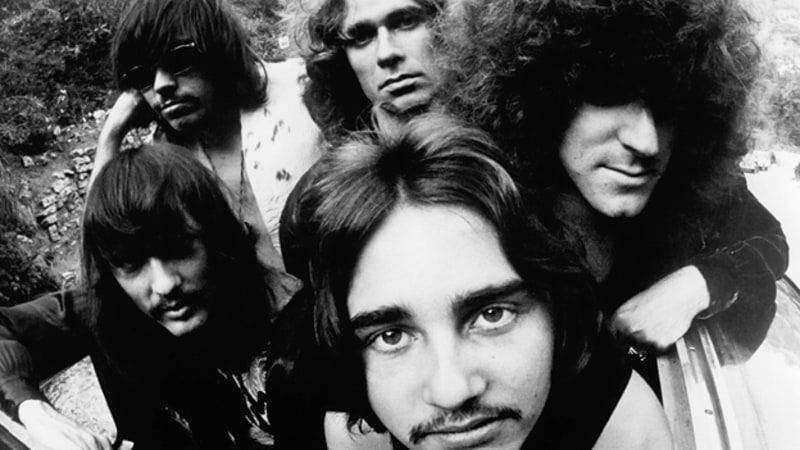
Side two opens on a much lighter note, with producer Gabriel Mekler’s tune “28” a pop rock influenced take on the naivety and innocence which had been the topic of many 1950s and 1960s love songs. The song, with lead vocals by drummer Edmonton, is a rarity among Steppenwolf’s catalog both in terms of its topic and its restrained delivery. “Magic Carpet Ride” penned by Kay and bassist Moreve, is the most psychedelic track on the album, and is immediately recognizable with its feedback fueled intro of Monarch’s guitar and McJohn’s organ. The four and a half minute album take, was released in edited form, running a bit under three minutes, as the album’s sole single, backed by an edited version of “Sookie Sookie” a track from the band’s debut album.
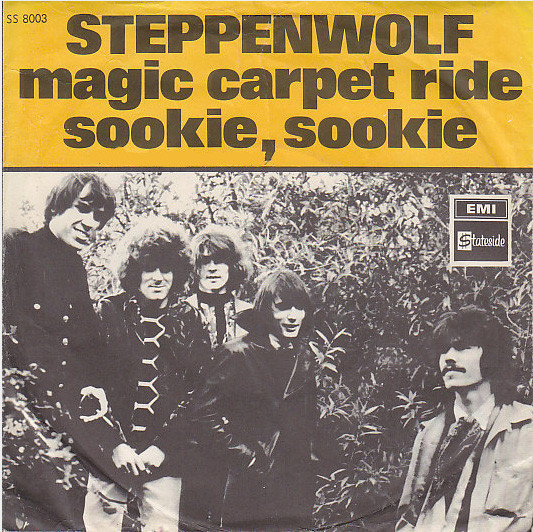
The hard rocking number was a big hit, one of the band’s highest charting single in the US, reaching #3 on the Billboard charts, but failing miserably in the UK. Again, Kay’s lyrics are incredibly insightful, as well as timely, regarding the psychedelic lifestyle of the late 1960s, from the song’s opening verse, “I like to dream, yes yes, right between the sound machine, on a cloud of sound I drift in the night, any place it goes is right, goes far, flies near, to the stars away from here.” McJohn’s organ carries the tune, before giving way to Monarch’s feedback filled guitar, as the tune gives shifts to its familiar verse, “well you don’t know what we can find, why don’t you come with me little girl, on a magic carpet ride.” The songs reference to the psychedelic experience may seem a bit dated, but its depiction is rather timeless, “close your eyes girl, look inside girl, let the sound take you away.” The song still receives heavy airplay and it recognized as a true classic of the psychedelic rock era. The last five tracks on side two of “The Second” form a continuous medley. “Disappointment Number (Unknown)” features a slide guitar intro by Kay, as the band shifts into the comfort zone of its blues roots. The track has a walking blues tempo, supplemented by Kay’s harmonica, and includes a quote of Elmore James’ “The Sky Is Crying.” “Lost And Found By Trial And Error” is a two minute number, with McJohn’s organ to the fore. Michael Monarch’s lead guitar smokes, with John Kay’s slide guitar adding texture to the tune. “Hodge, Podge, Strained Through A Leslie” is a three minute instrumental led by McJohn’s organ, with Monarch’s guitar and Kay’s harmonica adding flavor to this mellow tune, a real change of pace for the band. “The Second” closes with “Resurrection” a three minute slice of good time music, complete with Creedence style intro, call and response vocals, and tastefully restrained wah wah guitar by Monarch. A light hearted track, it proves the perfect closer for a most incredible album.
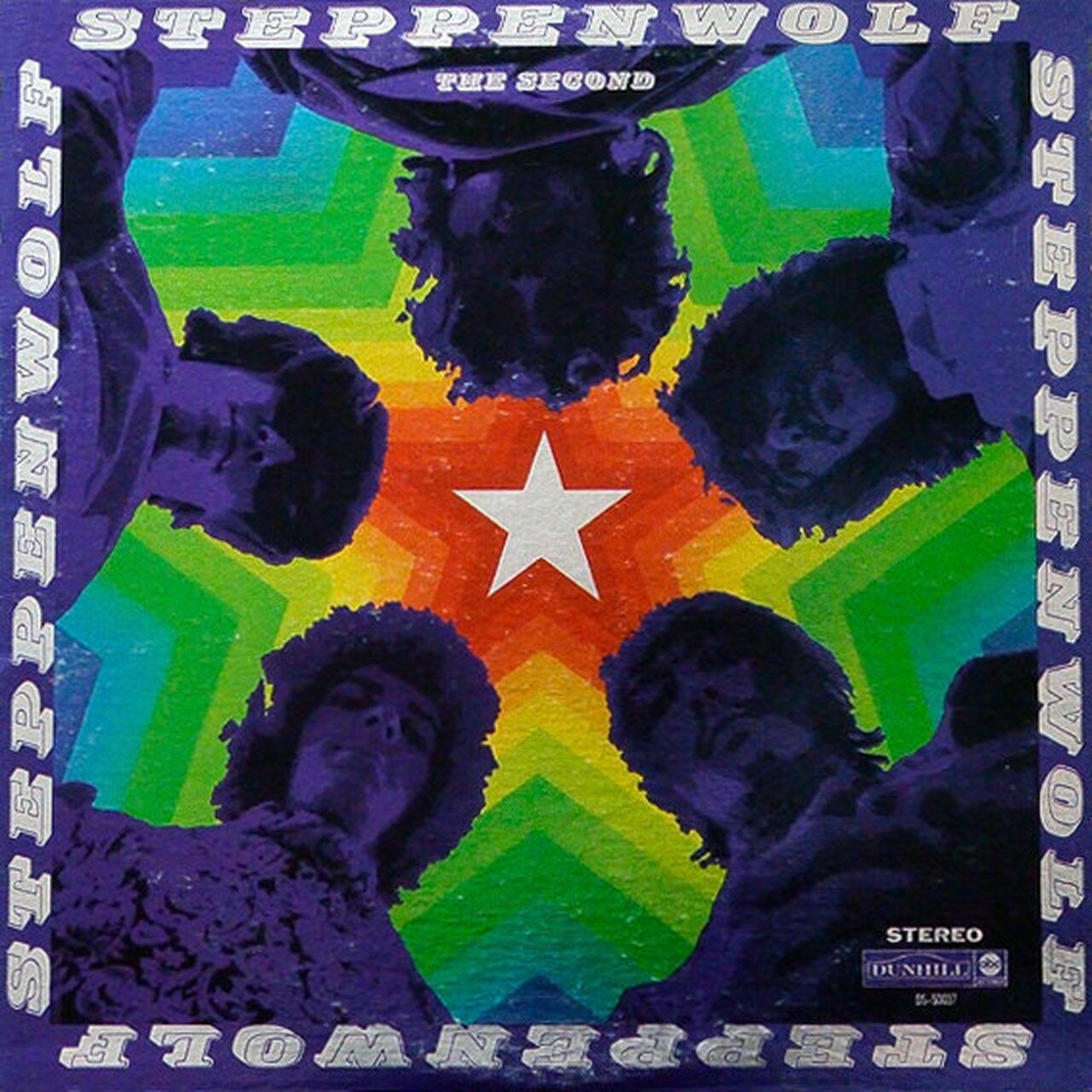
“Steppenwolf The Second” is considered by many to be the band’s best. Its balance of psychedelic and hard rock tunes placed the bar high for future releases, and Kay’s amazing lyrics would be hard for the group to match. The album is also notable for featuring lead vocals by drummer Edmonton as well as Kay. Whether or not Steppenwolf was able to match the quality of its sophomore effort is a question only the listener can answer, but its efforts will be the focus of future installments of “The Steppenwolf Story” which will follow in good time.
Steppenwolf – “Steppenwolf The Second” (1968)
– Kevin Rathert
All photo materials are copyrighted by their respective copyright owners, and are subject to use for INFORMATIONAL PURPOSES ONLY!

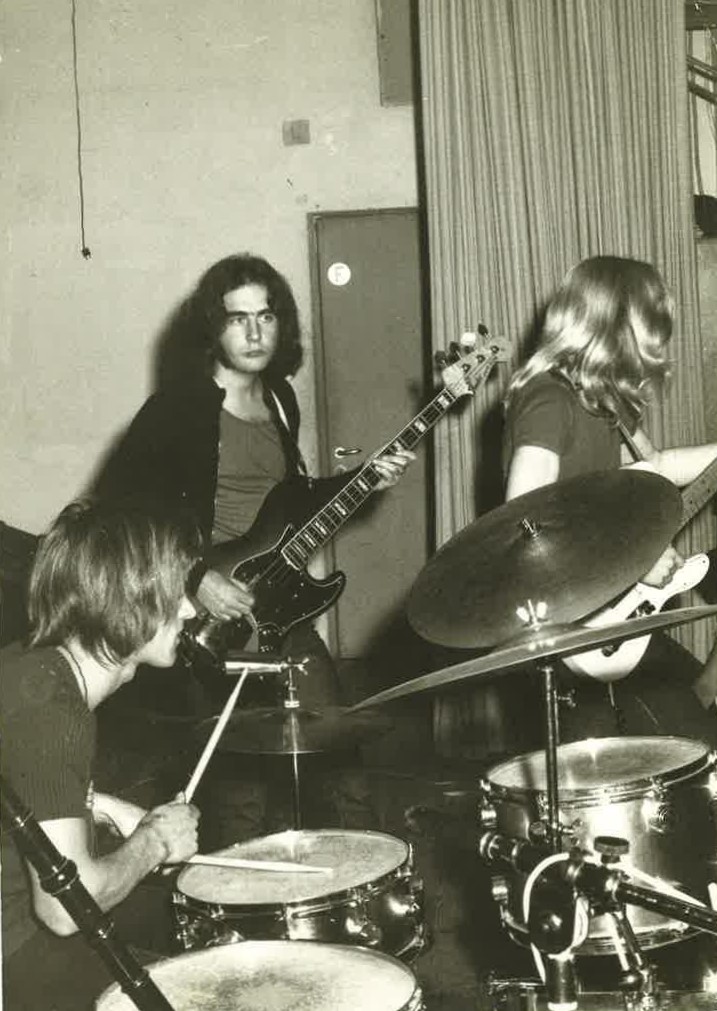
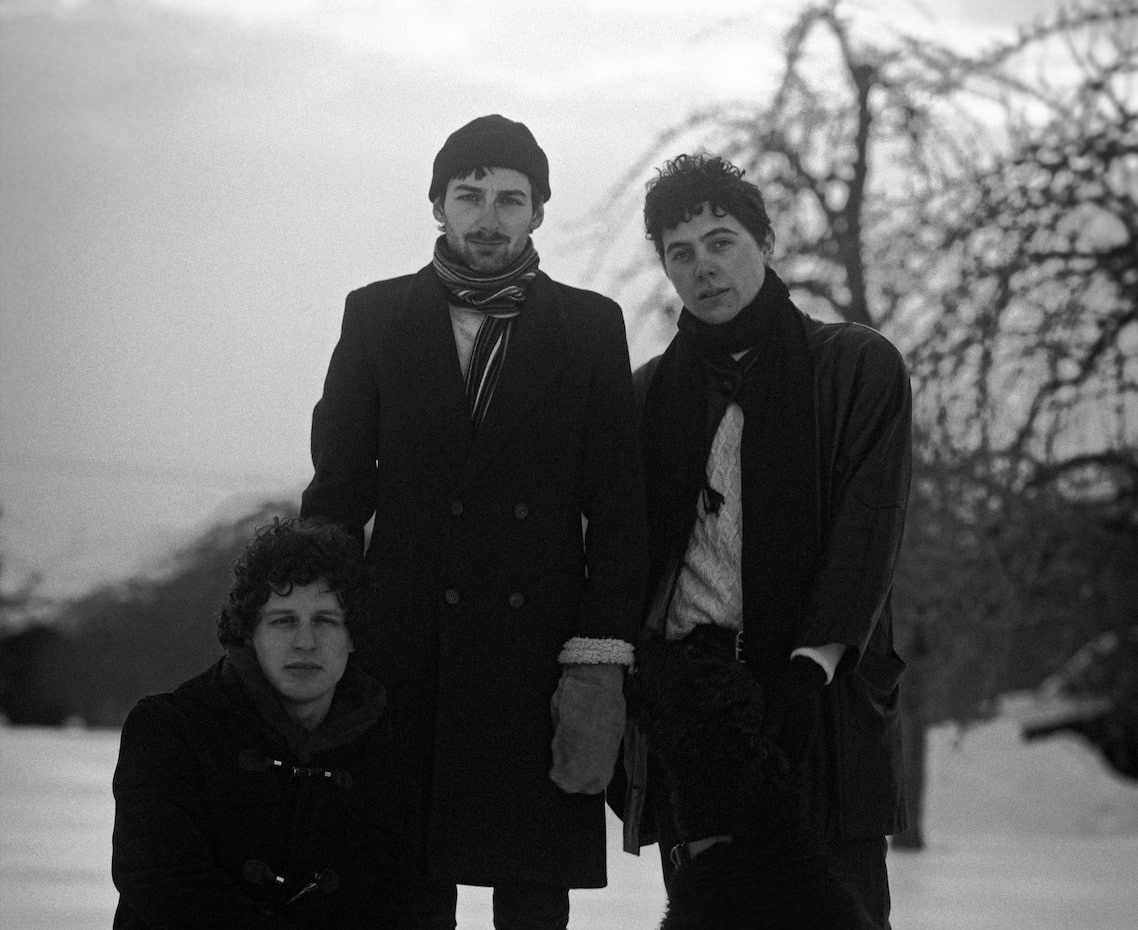
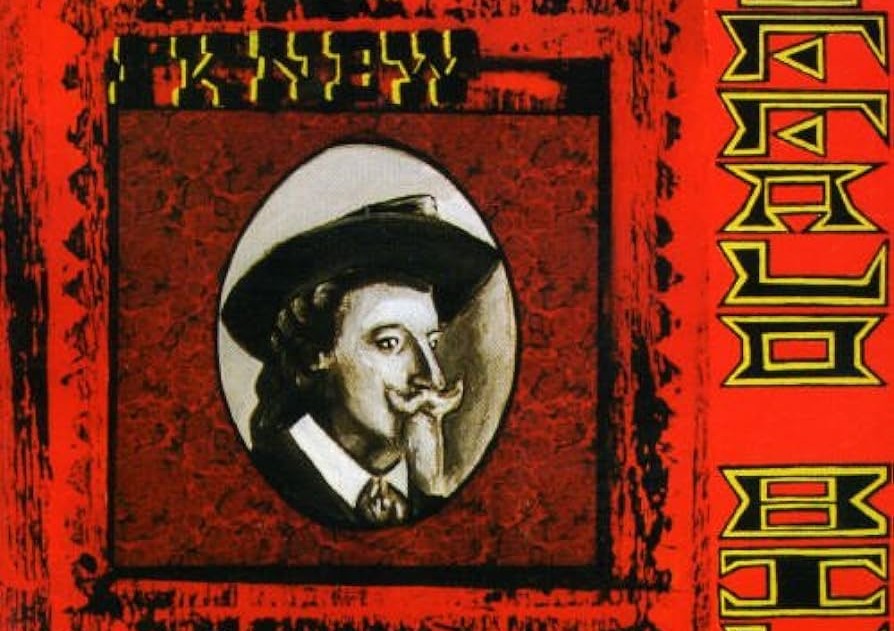
Great review of a great album. Monarch's guitar work throughout was not only great because of what he played but what he didn't play as well – so tasteful and restrained. Even Magic Carpet Ride's solo is more a case of restraint and omission than typical bombastic riffing. The mystery and sound made it unique at the time.
Fine review. The album isn't as strong as the debut but "Magic Carpet Ride" alone makes it worth the listen. Such a great and timeless track.
Thanks you Amy Godiva and The Triumph of the Thrill. I appreciate your kind words. I do hope you will enjoy the remaining 6 Chapters of The Steppenwolf Story. The series has been a true labor of love.
Kevin,
Thanks for the overview. Just a few comments. The song Faster Than The Speed of Life was written by Dennis Edmonton (real name Dennis McCrohan) as Mars Bofire, not Jerry Edmonton, as you state in the article. Any slide guitar on that album or any other Steppenwolf album was likely played by John Kay, not Michael Monarch. I saw Steppenwolf five times between 1968 and 1972 and John played excellent slide guitar at every show. And finally, it would be helpful to show pictures of the band that reflect the folks who were in the band at the time of the album's recording. I know all the personnel from all their line-ups because I was a fan in real time. Showing pictures of later line-ups is potentially confusing for younger readers.
JohnM
Absolutely wonderful review of a remarkable and timeless album. All I can say is ditto to everything! Especially the lyrics! I was 13 when I bought the album and it was never over my head. Now I'm 62 and I still feel the same way. I'm not a reviewer but boy I know an excellent review when I read one. You hit the nail on the head BING!
JohnM. Thank you for your comments. The Dennis Edmonton error escaped my proof reading, and was corrected soon after publication. Your heads up on John Kay playing slide guitar was most welcome and absolutely spot on. I'm not sure where my head was. The text has been amended to correct my gaffes. Many, many thanks for your kind words and your incredibly tactful remarks addressing my gaffe. I am in your debt kind sir!
Thank you very much for your answer, yes I agree, it sounds like Edmonton. And that goes for another song that I am unsure of, namely “I’m asking” from the For Ladies Only album. I read somewhere that it is George Biondo who has the lead vocals there (as he (probably) has on the last song on the same album, ” In Hopes Of A Garden”, but to me it sounds like Jerry Edmonton’s voice. Theres a lack of credits on that record too, and it’s hard to find a ‘for sure’ answer on the web, so I would be very thankful to here your thoughts again.
Sorry, these lines was supposed to be further down the side 🙂
Kay, it is most certainly George Biondo’s vocals on ‘In Hopes Of A Garden’ but I am looking further into ‘I’m Asking’ as album credits would indicate it is Biondo, but it sure sounds like Jerry Edmonton to me. Sorry I didn’t notice your comment until today. Thanks for your interest in the review.
The sound of this album is stellar. The mix is fat and real. Of all Steppenwolf's music the first two albums are the best sounding IMHO. I believe the first album was recorded and mixed in less than a week. I would imagine this album took a bit longer. You have to give Bill Cooper, Richie Podolor and Gabriel Mekler a lot of credit for making these great records
Outstanding review of an outstanding album. Looking forward to more excellent reviews.
Thank you for an very interesting site, many interesting details for an passionate fan such as myself. But I have a question though, who has the joint/co-vocals with Kay on Resurraction? Very grateful for an answer.
There are no co-vocal credits on “Resurrection”. Jerry Edmonton is credited as vocalist on “Faster Than The Speed Of Light” and co-lead vocals on “Don’t Step On The Grass Sam”. So, upon listening several times I am led to believe it is Edmonton doing the call and response with Kay. I wish I could be more definitive as it is possible that it is Kay’s vocal overdubbed, but it sounds like Edmonton to me. I wish I could be absolutely definitive in my response.
Thank you very much for your answer, yes I agree, it sounds like Edmonton. And that goes for another song that I am unsure of, namely “I’m asking” from the For Ladies Only album. I read somewhere that it is George Biondo who has the lead vocals there (as he (probably) has on the last song on the same album, ” In Hopes Of A Garden”, but to me it sounds like Jerry Edmonton’s voice. Theres a lack of credits on that record too, and it’s hard to find a ‘for sure’ answer on the web, so I would be very thankful to here your thoughts again.
‘To hear’, sorry.